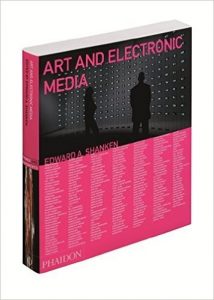‘Hand From Above’ is a public art piece on the ‘BBC Big Screen’ in Liverpool. “It encourages us to question our normal routine when we often find ourselves rushing from one destination to another.” [1] When pedestrians walk by, they see themselves on the big screen and will be tickled, stretched, flicked or removed by a big hand.
The screen is connected to a CCTV camera, linked to a computer that runs software that can pick walkers-by based on their proportions and how apart they are from other people. When there is too big a crowd it resorts to tickling people, with a random selection.
In a certain way this is an augmented reality, especially made to shake people out of their normal routine. As we can see in the video, people clearly react to it; they mostly have fun with it. But it also makes you think; a higher power (in this case a hand from above) can easily wipe you away. Our lives are all very precious to us, yet they’re also very fragile. Maybe we should stop once in a while and think about our lives and the world that surrounds us. This is in line with David Rokeby’s ideas about interactive technologies. He defines an interactive technology as a mirror which provides us with a self-image and which also provides us “with a sense of the relation between this self and the experienced world. This is analogous to our relationship with the universe” [2].


‘Hand From Above’ investigates how the use of outdoor screens can be used to enhance the feeling of community in a city. There’s even an entire project with conferences about this phenomena, called Urban Screens. Urban Screens defines its goals as follows: “We want to network and sensitise all engaged parties for the possibilities of using the digital infrastructure for contributing to a lively urban society, binding the screens more to the communal context of the space and therefore creating local identity and engagement”. [3]
‘Hand From Above’ is an engaging urban screen that playfully transforms its passers-by. It will get people’s attention and temporarily wake them up from their daily routine.
Notes:
[1] Chris O’Shea: http://www.chrisoshea.org/projects/hand-from-above/
[2] Rokeby, David. ‘Transforming Mirrors: Subjectivity and Control in Interactive Media’ (1995). In: Edward Shanken, red. Art and Electronic Media. London: Phaidon, 2009: p. 223.
[3] Urban Screens: http://www.urbanscreens.org/
